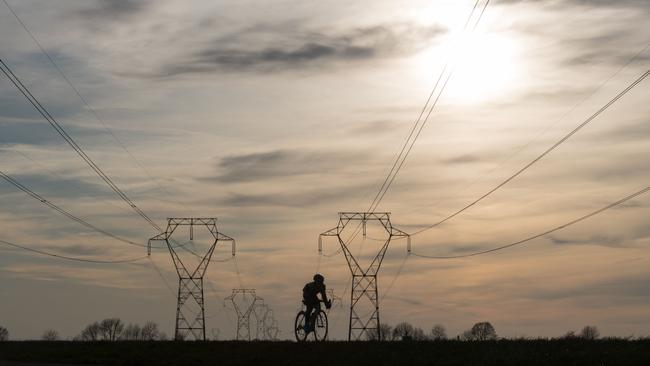BCA plots path to zero emissions by 2050
The lobby group for the nation’s biggest companies is on a collision course with the Morrison government over climate.

The lobby group for the nation’s biggest companies is on a collision course with the Morrison government, kicking off work on a new energy and climate policy that formally backs a price on carbon and net zero emissions for the economy by 2050.
A 12-page paper outlining the policy review, along with the appointment of former Australian Energy Council chief executive Matthew Warren to help the BCA secretariat with the project, is understood to have been sent last week to the Business Council of Australia’s 130 members.
The objective, according to the paper, is to develop an updated, comprehensive energy and climate change policy package “driven by science, technology and innovation to put Australia on a path to net zero emissions by 2050”.
“Climate change will have serious economic, environmental and social consequences for Australia,” it says.
“We have a responsibility to help guide the government to develop a credible, effective and durable response to this challenge.”
The BCA, according to the paper, shared the government’s concerns about the impact of climate policy on the economy, employment and regional Australia.
The solution was to frame an economy-wide response that “accelerated the development of new, lower and zero-emissions technology” and identified the appropriate investment pathway.
Outspoken billionaire Mike Cannon-Brookes, the co-founder and co-chief executive of tech company Atlassian, which is not a BCA member, attacked the lobby group last month, describing it as a “strongly regressive force” in the climate debate.
Mr Cannon-Brookes’s intervention drew an angry response from the BCA.
“We absolutely reject any suggestion that we have been anything but proactive and constructive on climate and energy policy,” the BCA said. “If we are to provide affordable and reliable energy and reduce emissions, we all need to work together.”
But Mr Cannon-Brookes told The Australian he was a big believer that business could lead the nation to net zero emissions.
“It would be awesome if the BCA updated their position because the path to net zero represents a massive opportunity for the Australian economy,” Mr Cannon-Brookes said.
“But to reach the target, they would also need to match their policy with action and encourage their members to do the same.”
Despite the BCA’s acknowledgment of a climate divide, its formal endorsement in a policy paper of carbon neutrality by 2050 will not endear it to the Morrison government, which had to douse a further outbreak of the climate wars last Tuesday after a failed Nationals leadership bid by Barnaby Joyce.
Soon after Mr Joyce lost the spill, he and his backers attended a joint partyroom meeting where they strongly opposed more forceful action to help curb the damaging effects of climate change.
Liberal Party MPs, conscious of mounting voter concern about a link between global warming and the nation’s devastating bushfire season, hit back, responding that the government would lose city seats if it did not take climate change seriously.
Late last month, Scott Morrison declined to commit to a target of zero net emissions by 2050 if it led to job losses and higher power prices.
“What troubles me is that there are plenty of people at the moment who will go out and make a glib promise about that and they can’t look Australians in the eye and tell them what it will mean for their electricity prices, what it will mean for their jobs,” the Prime Minister said.
The BCA said yesterday that over the past decade it had worked with many stakeholders to design and support market-based mechanisms that reduced emissions, including the Howard government’s proposed emissions trading scheme, the Rudd government’s carbon pollution reduction scheme and, most recently, the national energy guarantee.
“We’ll continue working with our members and the government to develop a comprehensive climate and energy policy that puts us on a path to achieve net zero emissions by 2050 while also delivering affordable energy and protecting our economy’s international competitiveness,” a spokesman said.
The BCA, which is charting a new course under recently appointed president and former MYOB chief executive Tim Reed, has been sandwiched between climate progressives and conservatives in its membership base.
Critics have targeted the group’s support for the government’s controversial use of Kyoto carry-over credits to meet emissions reduction targets in the 2016 Paris Agreement.
A further concern was its 2018 claim that the Labor Party’s plan for a 45 per cent reduction in emissions by 2030, which Labor took to last year’s federal poll, was “economy wrecking”.
The BCA described the government’s 26 per cent target as “appropriate and achievable”.
Late last year, Telstra threatened to withdraw its membership in a move that coincided with chief executive Andrew Penn’s announcement that the telco giant would adopt a target of net zero emissions by 2050.




To join the conversation, please log in. Don't have an account? Register
Join the conversation, you are commenting as Logout